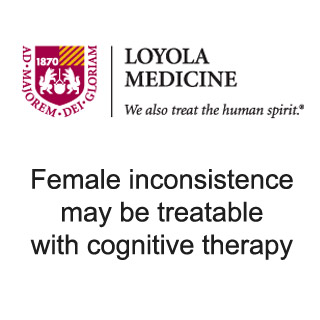
Urinary inconsistence is a problem which involves involuntary leakage of urine. This may have a serious impact on the quality of life of the people who suffer from this type of inconsistence.
“Nearly one in four women suffers from a pelvic floor disorder, which includes incontinence. Cognitive therapy may play a vital role in a comprehensive approach to treating this disorder,†said study investigator Mary Pat FitzGerald, MD, urogynecologist, Loyola University Health System.
In order to determine whether cognitive therapy may be useful for people suffering from this problem a subset of about 10 patients were believed to have been analyzed. Cognitive therapy is said to consist of guided-imagery and deep breathing exercises. These exercises are believed to aid in training the brain to have better control on the bladder minus the use of drugs or surgery.
Study investigator, Aaron Michelfelder, MD, vice chair, division of family medicine, Loyola University Health System, says that, “The mind-body connection has proven to be particularly valuable for women suffering from incontinence. Cognitive therapy is effective with these women, because they are motivated to make a change and regain control over their body.â€
Prior to the commencement of the study, the subjects were first introduced to cognitive therapy. Following which they were seemingly instructed to listen to audio recordings with a number of visualization and relaxation exercises at home for about twice per day for a period of about two weeks. They were also asked to note down the number of inconsistence incidents before and after receiving cognitive therapy.
The investigators stated that an improvement was noticed in the number of symptoms of these subjects post cognitive therapy. It seems that there was a significant decrease in the number of urge inconsistence incidents.
The study results have been published in the Journal of Urology issue.
